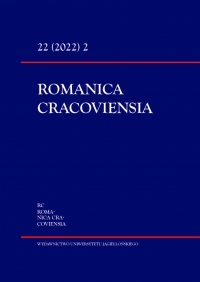«No se dice “¿qué?”, se dice “¿mande?”». Origen y evolución de la fórmula “mande” en español
«No se dice “¿qué?”, se dice “¿mande?”». Origin and evolution of the formula «mande» in Spanish
Author(s): Andrzej ZielińskiSubject(s): Pragmatics, Historical Linguistics
Published by: Wydawnictwo Uniwersytetu Jagiellońskiego
Keywords: pragmaticalization; politeness; directive speech of act; formula;
Summary/Abstract: The objective of the study is to delve into the origin and the process of pragmaticalization of the expression mande, from a directive act of speech. Although its use is currently typical of Mexican Spanish, where with interrogative intonation mande is used to respond to the addressee‘s call or to ask the recipient to repeat the message that the sender has not understood or has not heard well, its uses are well documented in peninsular Spanish from the 16th century. With the help of discursive proximity texts (comedy, dialogue texts, etc. from 16th to 20th centuries), the author tries to find the socio-pragmatic contexts that contributed to the creation of the formula mande.
Journal: Romanica Cracoviensia
- Issue Year: 22/2022
- Issue No: 2
- Page Range: 173-187
- Page Count: 15
- Language: Spanish

